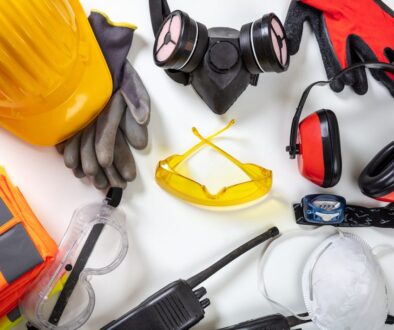Maintaining a Campus Culture in Potentially Fluid Circumstances
Campus culture is an integral part of student life. Not only can it be a great deal of fun, but also a powerful source of communal socialization through which students are exposed to peer and societal norms that help them better understand different cultures, become more open-minded, and develop mutual respect.
However, for more than a year, campus culture has been disrupted by the COVID-19 pandemic. For colleges and universities that went fully remote, there was no communal socialization; and for those that operated in hybrid or in-person environments, physical communal socialization was impeded by masks and social distancing.
Many overcame the physical impediments to communal socialization by moving campus culture online. Virtual community interactions between students were organized, private groups were set up for students to meet online, and remote wellness checks that included engagement questions as well as mental health screening were conducted daily.
Nonetheless, maintaining a campus culture online is not easy, and students often suffer “Zoom fatigue” and withdraw from virtual interactions. Therefore, to safely support a return to a physical campus culture, hundreds of colleges and universities are requiring students to be fully vaccinated before returning to campus in the fall. Significantly, the number requiring students to be fully vaccinated against COVID-19 has risen sharply since the CDC’s recently revised guidance.
Why the CDC’s Guidance Makes a Difference
On May 13, the CDC revised its guidance about wearing masks and maintaining social distancing indoors for people who are fully vaccinated against COVID-19. There are exceptions, but for most colleges and universities that have adopted a “must get vaccinated” policy, it means students will be able to socialize physically in the same ways as before the pandemic.
For schools and colleges that have not adopted such a policy, the choice exists for either only vaccinated students to physically socialize without masks or social distancing, or for all students to physically socialize wearing masks while keeping a safe distance apart regardless of their vaccination status. Neither option is ideal for maintaining a campus culture in an in-person environment.
Certainly, any unrestricted physical socialization will be beneficial to maintaining – and building – a campus culture; but it may be a good idea for colleges and universities not to abandon virtual community interactions just yet, as there is a strong possibility the CDC’s guidance for wearing masks and maintaining social distancing may change again before the end of the year.
Concerns Grow about CDC’s Revised Guidance
Media coverage of the CDC’s revised guidance focused more on President Biden’s “great day for America” speech than the terms and conditions of the CDC’s guidance – or the fact it is only guidance, not law. In jurisdictions where masks and social distancing are still mandated, restrictions still apply. Restrictions also apply in many businesses due to legally enforceable OSHA regulations.
The concerns about CDC’s revised guidance are mostly logistical and scientific. According to Dr. Anthony Fauci there will be confusion about applying the revised guidance because “we don’t have any way of knowing who is vaccinated and who’s not vaccinated.” Unlike in Europe, the United States doesn’t have digital certificates vaccinated people can download to their mobile phones.
More concerning is the science behind the decision. While the CDC cites multiple studies showing the effectiveness of vaccines, there are no studies in which vaccinated, unmasked people have been in close contact in a poorly ventilated environment – much like might be found in a college or university. Furthermore, nobody knows how long the vaccines are effective for, with many experts – and the vaccine companies themselves – suggesting booster shots might be required within a year.
The Implications for Maintaining a Physical Campus Culture
No matter how hard colleges and universities try to protect students by insisting they are vaccinated, the likelihood is there will still be some on-campus infection. Some students will naturally have less responsive immune systems – meaning that vaccines will be less effective or lose their efficacy quicker – and there is evidence to suggest recreational drug use can impact immune competence.
Furthermore, when students with less than 100% protection against COVID-19 venture off-campus, there is a possibility they will bring the virus back with them – not necessarily or immediately displaying the symptoms of COVID-19 – but exposing students with weak immune systems or immune incompetence to the virus.
Although the risk of this happening is lower than previously, there may be circumstances in which it is necessary to isolate or quarantine students. Depending on the scale of campus infections, it may not be possible to maintain a totally physical campus culture, and it may be necessary to reintroduce virtual community interactions, private groups, and remote wellness checks for some students.
Solutions to Help Campuses in Potentially Fluid Circumstances
Regardless of whether colleges and universities have adopted a “must get vaccinated” policy, it is going to be a challenge to keep on top of student health and safety in upcoming terms. Solutions such as the Rave platform can help campuses react and respond quickly in potentially fluid circumstances by keeping campus populations informed about short notice changes to procedures.
In addition to supporting virtual community interactions, private groups, and remote wellness checks, the Rave platform can be configured to automate quarantine check-ins to specific groups of students or students in specific locations. The platform can also act as an emergency outreach for students experiencing ill-health, food shortages, or housing issues.
To find out more about how the Rave platform can help colleges and universities maintain campus culture in potentially fluid circumstances, do not hesitate to get in touch. Our team will be happy to organize a demo of the platform’s capabilities and discuss how it can help address the challenge of keeping on top of student health and safety in upcoming terms.





